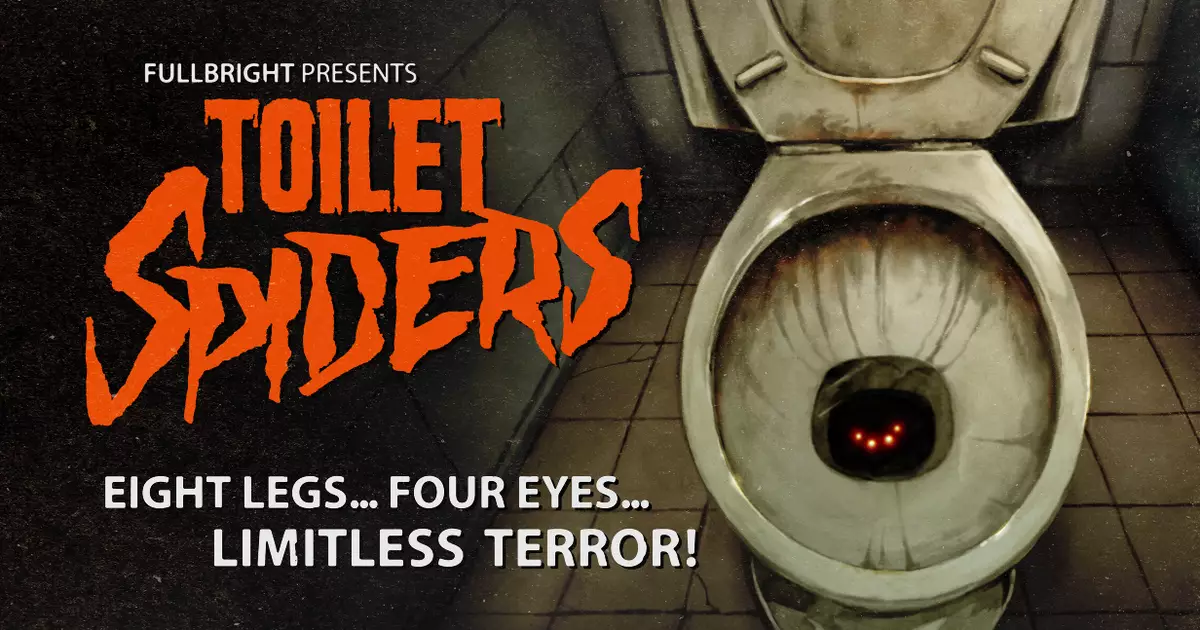Fullbright is a name that resonates with many gamers, primarily for its impactful storytelling and atmospheric design. Their biggest claim to fame, “Gone Home,” is a testament to their unique storytelling style, one that dives into emotional depths through the lens of exploration. However, with the recent release of “Toilet Spiders,” it’s evident that the studio is venturing into much darker, quirkier territory. This transition invites a deeper inspection not just of the games themselves but of the underlying themes and intentions stemming from the studio’s evolution.
In “Gone Home,” players navigate the quiet yet haunting halls of a family home, piecing together the complicated emotions and experiences of its inhabitant. The narrative unfolds through the exploration of the environment, where mundane objects unfold more than simple backstory — they conjure feelings of nostalgia, mystery, and sorrow confined in hidden corners. The immersive nature of the game, paired with its muted aesthetic and environmental storytelling, showcases Fullbright’s craftsmanship in creating an emotional ambiance, allowing players to connect deeply with the protagonist’s journey.
The strength of “Gone Home” lies in its reliance on atmosphere over jump scares or overt horror elements; it deftly presents the emotional turmoil and the essence of the characters without resorting to conventional horror tropes. Thus, when players experience the juxtaposition of a serene environment against a backdrop of unresolved conflicts and harsh truths, they find themselves in a poignant meditation on the walls we build around ourselves.
Fast forward to “Toilet Spiders,” and the studio showcases a jarring tonal shift. Eschewing emotional elegance for a survival horror experience, this game invites players to reckon with absurdity wrapped in a horror framework. Described as a “short, replayable lo-fi first-person survival horror game,” it pits players against giant, radioactive spiders lurking within filthy toilets, transforming what was once a safe, intimate space into a zone of sheer terror.
The very premise feels like a surreal yet pointed commentary on fear itself — a fear that envelops us in our most vulnerable moments. The very thought of encountering a monstrous creature while attempting to use a seemingly innocuous piece of furniture represents a profound psychological shift. It’s almost laughable, yet it manages to tap into a primal human instinct: the fear of the unknown that hides in mundane experiences.
However, while the game introduces an interesting gameplay mechanic focused on resource management and risk assessment, it also prompts one to ponder whether the whimsical creature design, coupled with its B-movie aesthetic, is an intentional strategy to mask deeper themes or critiques reflecting on the studio’s tumultuous past.
Critically, the backdrop of Fullbright’s transformation cannot be ignored. With the exit of co-founder Steve Gaynor amidst serious accusations of workplace misconduct, the narrative surrounding “Toilet Spiders” gains a new layer of interpretation. The drastic tonal shift raises questions of whether the absurdity and horror of the game are allegorical, perhaps acting as a form of release for the stresses and chaos that unfolded within the company. The juxtaposition of a whimsical spider-creature with a sinister gameplay loop potentially serves as an encapsulation of Gaynor’s psychological state following the controversy.
Moreover, as Fullbright’s landscape evolves, the notion that “Toilet Spiders” could function as a reflection on the consequences of workplace toxicity adds a profound twist. Like the hidden spiders in the game, uncomfortable truths remain obscured under layers of humor and horror. Such simple mechanics could signify deeper battles, be they personal or wider systemic issues, all lurking beneath the surface.
Fullbright’s journey from crafting heartfelt narratives to creating bizarre survival experiences represents a pivotal moment in the studio’s storytelling. While “Gone Home” evokes sadness and introspection, “Toilet Spiders” leans into absurdity and horror, challenging players to confront their fears within distorted versions of familiar spaces. The shift not only serves to engage a different player base but also raises philosophical discussions around fear, trauma, and the aftermath of controversy.
In a world where authenticity and emotional connectivity reign supreme, Fullbright’s radical change offers a unique commentary on the complexities of human emotion and the often-absurd realities we navigate. Ultimately, while players venture into the puzzling horror of “Toilet Spiders,” they may unknowingly also be tracing the evolving narrative of a studio seeking to redefine itself amid its internal struggles.


Leave a Reply